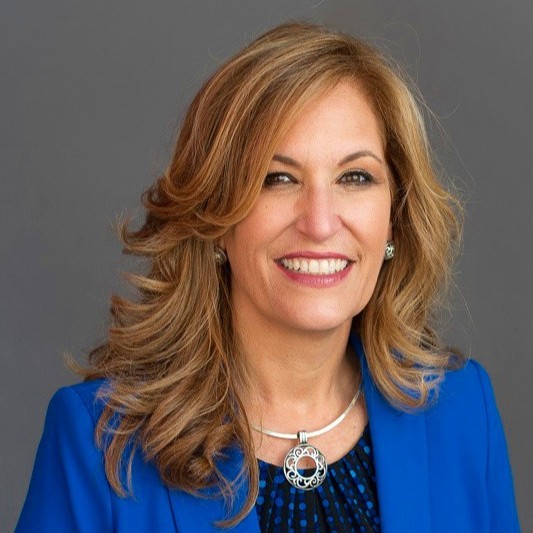Paul Carroll
A study just came out showing that mergers and acquisitions of agencies and brokerages, while down a bit in 2023, still registered one of the biggest years on record. You undertook a merger a couple of years ago. How does that trend look from where you sit?
Gaby Dominguez
In our case, we were a small enough agency that we were getting constrained with appointments, restrictions, not meeting the quotas, not meeting the loss ratios. Joining with another agent and now having a much bigger book of business means I have more opportunities for appointments.
So, yes, a lot of agents at the size I was before are going to be constrained as to what they can and can't do if they don’t merge. In fact, you're going to probably even lose appointments because you're not able to meet the requirements that some of these carriers are putting on us.
Paul Carroll
For frame of reference, how big were you before and how big are you now?
Gaby Dominguez
I was at $20 million in premium and $2 million in revenue. We're now at $7.5 million in revenue.
Paul Carroll
I assume dealing with carriers is especially difficult, as well as important, in Florida.
Gaby Dominguez
In South Florida, our market is so, so difficult right now. Most of our book of business is written through excess and surplus instead of admitted carriers, so having those connections available is key.
When I merged, I was able to acquire admitted carriers such as The Hartford and Chubb. I was not going to get those appointments on my own. Now that we’re a bigger agency, we have better contracts, better commission structures, better contingency contracts.
Paul Carroll
You were slammed last week because of some big renewals. Those have to be rough these days, especially in Florida.
Gaby Dominguez
It's horrible.
Markets right now are non-renewing, removing the wind… and you’re getting a quote to present to the client maybe five days before the renewal day. Sometimes, it’s just two days before, especially on larger accounts.
It's just a mess. When you think about the number of accounts that we have to renew monthly, then multiply that by all the agencies in South Florida, it’s hard to get any time with carriers.
You're basically in a pipeline. If you call enough, if you're in front of them, if they like you, maybe they'll put you up in their stack so they can review the account. But you're basically bleeding.
I've got an account that I'm writing right now, which is a tattoo parlor that also does cosmetic tattoos and medical tattoos, so it's a little bit more extensive. The carrier that writes that most effectively, efficiently and competitively, if you submit an account to them you've got to wait between 20 and 30 days to get a quote.
That's unheard of. How can you wait 20 to 30 days to get a quote? How far ahead do you have to present an account to a carrier to get a quote you can present to a client?
With Citizens [the property insurer of last resort in Florida], you upload all the information: the application, the appraisal, all the supporting documents, which is a huge amount, often including a 40-year recertification. Who was even talking about 40-year recertifications just four years ago? Now that is a must when you submit an application--room certifications, electrical certifications, wind mitigation…. Once you’ve uploaded all that information, you sit there and wait.
They secure your effective date. Let's say the coverage is effective next Monday. But they won’t review the application until they have time. And that can be 20 to 25 days. Then they come back and say, “Oh, by the way, you got everything in, but you're missing this. You've got five days to give it to me or you lose your spot and start all over again.”
There’s no communication with underwriting even with excess and surplus carriers, and nobody will answer a phone these days. I cannot put everything in an email sometimes, so it’s important to be able to pick up the phone and say, “Hey, Paul, can I just talk to you about this account? I get that you're seeing this and this, but look, there's this and this and this, and that other thing has gone away.” The reaction is: Put it in an email.
Paul Carroll
Are the insurance reforms in Florida having any noticeable effect yet?
Gaby Dominguez
Losses are still being reported. We still have attorneys on the radio saying, “Don't report a claim to the insurance company. You come to me first.”
Carriers are saying the new legislation has made a difference. The number of claims has declined.
But it’s too soon to know. For sure, we have not seen a reduction in premiums. I’m working with a restaurant right now that last year paid $15,000 in premium, with wind. Normal restaurant, nothing big. A major carrier just renewed it: $29,000. Same sales, but nearly twice the premium, and I have to sit with this client and tell them that.
The Department of Insurance says several carriers are very interested in writing and are preparing to come aboard. Maybe by the end of this year, we'll see three to five carriers coming into play.
But I've been in this business long enough that I go back to Hurricane Andrew in 1992, which is when all this mess started. Carriers came in afterward and took business out of Citizens, but then another storm brewed, and those carriers went under, so the business went back to Citizens. It’s been a revolving door ever since. So I’m a bit skeptical. Are carriers coming in with the reserves they need? Do they have the management they need to be effective?
Paul Carroll
One of the things we've really focused on at The Institutes is the idea of Predict & Prevent—get away from this model where all you do is repair and replace after the storm hits, and help keep people from having losses in the first place. But is there much you can do to help clients prepare for what forecasts are saying will be a rough year for Atlantic hurricanes? I mean, the storms are going to hit your area, or they aren’t, right?
Gaby Dominguez
The last 24 months, the number one conversation we’ve had with our clients is, “How old is your roof?” If your roof has a life expectancy of less than five years, you have to change it. Again, that’s not a conversation we were having five or six years ago.
But people sometimes cannot afford a roof replacement. Here, a normal roof can easily cost between $30,000 and $40,000. It's not what it used to be. Ten years ago, the cost was maybe $12,000 or $15,000.
We also ask, “How old is your water heater? Have you had any electrical and plumbing updates?” If your water heater is more than 14 or 15 years old and you haven’t updated your plumbing and electrical—especially on older homes, and we have a lot of older homes here—then carriers are not going to quote you. So you have to go to the excess and surplus market.
Paul Carroll
I’ve hoped that insurance premiums would send strong enough signals that policyholders would make their homes more resilient. It sounds like that may be happening.
Gaby Dominquez
People are doing it. It's either that or lose your coverage, and if you have a mortgage, the force-placed insurance is three times more than the quote that I'm going to give you, which is already expensive.
The state is providing assistance through different programs that help people replace the roof, get a new AC, install impact windows and so on.
Paul Carroll
Are there enough plumbers, electricians and contractors to do all this work?
Gaby Dominguez
It's a struggle. Every single day, I hear: “Do you know somebody who's reputable?”
There's just so much work that needs to be done. And that's not only on residential. I do a lot of condominium associations. Right now, I'm battling on a condo whose 40-year recertification failed. The tab to replace the roof, change the electrical—because the electrical is no good—and do some plumbing work is over $500,000. So they have had to go to a bank and request a loan for half a million dollars. Now they’re on a timeline: This week we're doing this, the next two weeks we're doing that, this is where the progress on the roof is. And I have to report to the carrier every two weeks what the insured has or has not done. That is just draining.
Paul Carroll
Holy smokes.
Gaby Dominguez
When an agent-friend of mine from California and I are at agent/broker meetings, we're the two who tell everybody else, “You guys have it fine.”
Paul Carroll
Thanks, Gaby. I really enjoyed the conversation. Here’s hoping conditions start getting at least a bit easier.
About Gaby Dominguez
 | Gaby joined the second-generation family-owned business – Avante Insurance Agency – after obtaining her property and casualty license in 1986. She became president of Avante in 2010 and merged with NEA Insurance Group in 2022, where she also serves as leader of the highly successful personal lines team for over 20 employees, who are mostly women. Gaby has numerous professional achievements in her 38-year insurance career including – 1) Chartered Property & Casualty Underwriter CPCU designation showcasing all facets of the insurance business; 2) numerous positions in CPCU Society (local chapter president; regional governor-Southeast; diversity and nominating committees; and chair of the Agent Brokers Interest Group, a position she occupies currently); 3) past president and council president of the Latin American Association of Insurance Agencies; and 4) member of the depopulation and technical advisory committees of Citizens Property & Casualty Insurance, the largest insurer in Florida. |






